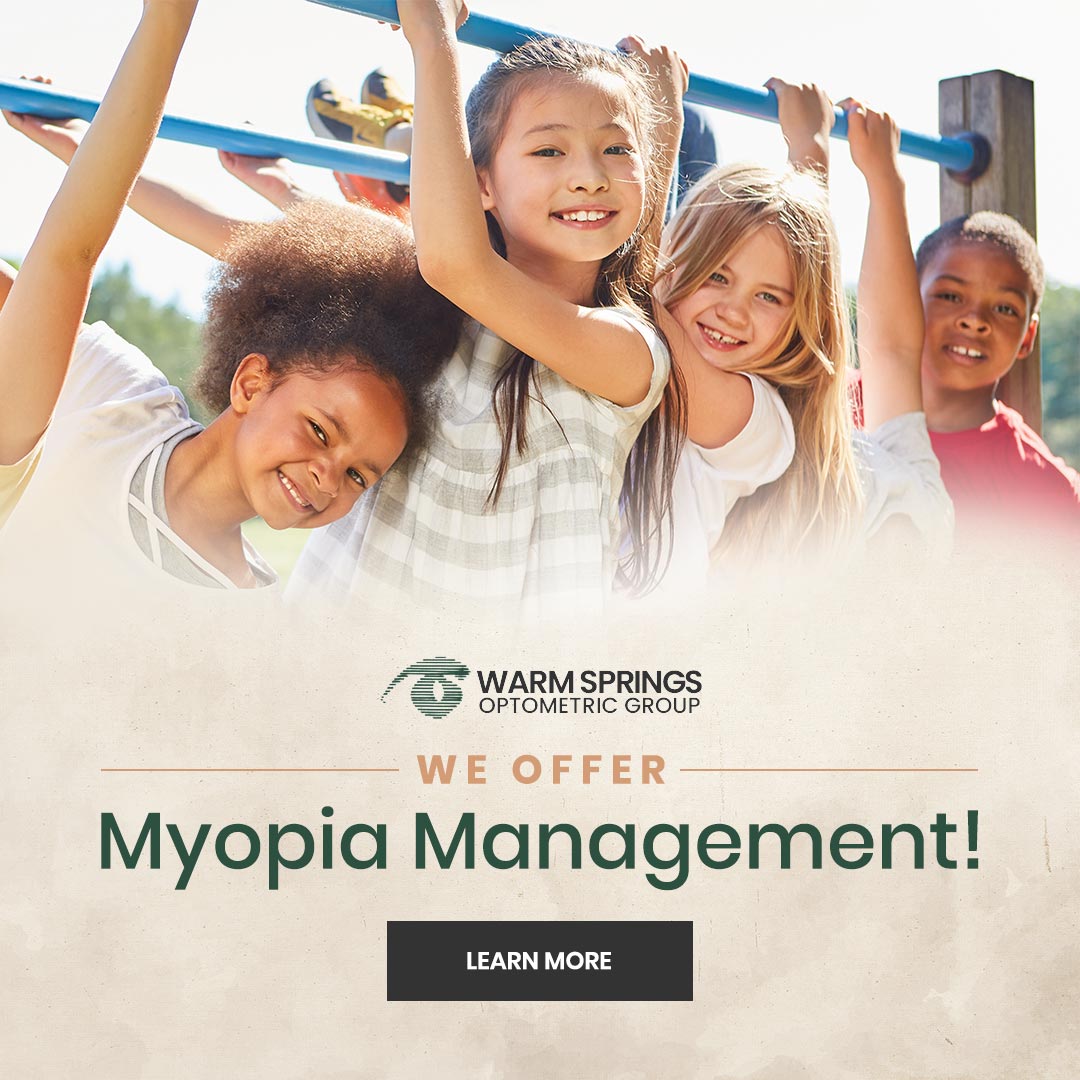
As myopia, or nearsightedness, continues to increase worldwide, effective management options for controlling its progression have become a focal point for eye care professionals and parents alike. Myopia is not just a refractive error—it can lead to more serious conditions, such as retinal detachment, glaucoma, and cataracts, as it worsens over time. Fortunately, there are several innovative ways to manage myopia in children and young adults to help slow its progression.
Three prominent options for myopia management are Orthokeratology (Ortho-K), soft multifocal contact lenses, and atropine eye drops. Each method has its own set of benefits and considerations, and the best choice will depend on individual needs, lifestyle, and specific eye health goals. Let's take a closer look at these three options.
Ortho-K: Re-shaping the Cornea While You Sleep
Orthokeratology, commonly known as Ortho-K, is a non-surgical method that uses specially designed rigid gas permeable (RGP) lenses to reshape the cornea overnight. This process temporarily corrects myopia during the day, allowing patients to go about their activities without the need for glasses or contacts.
Benefits:
Non-invasive: Ortho-K is a safe, non-surgical treatment that doesn’t involve medications or laser procedures.
Effective for children: Numerous studies show that Ortho-K can slow myopia progression by up to 50% or more in children and teens.
Daytime freedom: Since the effect lasts throughout the day, there is no need for glasses or contact lenses during normal waking hours.
Customizable fit: Ortho-K lenses are highly customizable, allowing optometrists to tailor them to the individual needs of each patient.
Considerations:
Maintenance: Ortho-K lenses need to be cleaned and cared for carefully. Failure to maintain them properly can lead to complications.
Requires commitment: Patients must wear the lenses every night for optimal results, and missing a night could cause a reversal of the reshaping effect.
Adjustment period: Some patients may experience discomfort or dryness when first adjusting to Ortho-K lenses.
Soft Multifocal Contact Lenses: A Comfortable Option for Continuous Control
Soft multifocal contact lenses are another popular choice for managing myopia progression. These lenses are designed with multiple prescription zones, providing both distance and near vision correction. The unique design allows for clear vision at all distances, while also controlling the rate at which myopia worsens.
Benefits:
Comfort: Soft multifocals are typically very comfortable to wear.
Proven efficacy: Studies show that multifocal lenses can significantly slow myopia progression by reducing the eye's tendency to elongate, which is responsible for worsening nearsightedness.
Considerations:
Not overnight: These lenses need to be worn during the day, so they don’t offer the same overnight convenience as Ortho-K.
May require adaptation: Some patients, especially first-time contact lens wearers, might find multifocal lenses a bit challenging to adjust to.
Atropine Drops: Medicinal Control for Slower Progression
Low-dose atropine drops can be an effective treatment for slowing myopia progression in children. Atropine works by temporarily relaxing the eye’s focusing ability, which helps to reduce the eye's tendency to elongate as it grows.
Benefits:
Non-invasive: Atropine drops are a simple, non-surgical option that doesn’t involve lenses or other physical devices.
Convenient: The drops are typically applied once a day, usually before bedtime, making them a convenient option for children or busy adults.
Well-researched: Extensive studies have shown that atropine can effectively slow myopia progression, often by up to 50% in children.
Considerations:
Possible side effects: Although rare, some children may experience side effects like light sensitivity, blurred near vision, or difficulty focusing on close objects.
Ongoing use: For optimal results, atropine drops must be used consistently over time, and discontinuing them may result in a return of myopia progression.
Not suitable for all patients: While effective for many children, atropine drops may not be ideal for everyone, especially those with certain eye conditions or allergies to the medication.
Which Option Is Best for You?
Choosing the right myopia management strategy is highly individual, depending on a variety of factors such as age, lifestyle, eye health, and personal preferences.
For children who want a non-invasive, overnight solution, Ortho-K may be the most effective.
Older children who prefer daytime wear and comfort, soft multifocal lenses offer a balanced and proven approach.
For those seeking a simple, medication-based option, atropine drops are a strong choice, particularly for younger children who may not yet be ready for contact lenses.
At Warm Springs Optometric Group, we’re dedicated to helping you find the best solution for managing myopia. If you’re looking to slow the progression of myopia for yourself or your child, we can help guide you through the options to determine which one will work best for your needs.
Schedule a Consultation Today
As myopia continues to rise globally, finding the right management strategy is crucial to safeguarding long-term eye health. Whether you opt for Ortho-K, soft multifocal lenses, or atropine drops, each option offers unique benefits to slow the progression of myopia and preserve vision. The key is to work with your eye doctor to choose the method that best fits your child’s lifestyle, comfort, and eye health needs.
Contact Warm Springs Optometric Group to schedule a consultation and learn more about how we can help slow the progression of myopia with the best approach tailored to you or your child. Visit our office in Fremont, California, or call (510) 490-0287 to book an appointment today.





